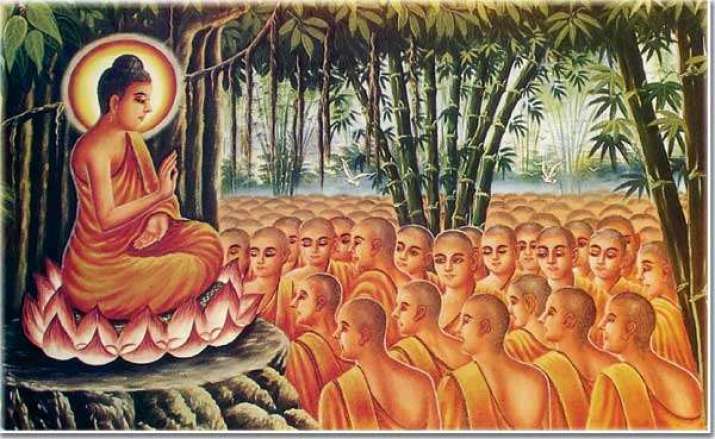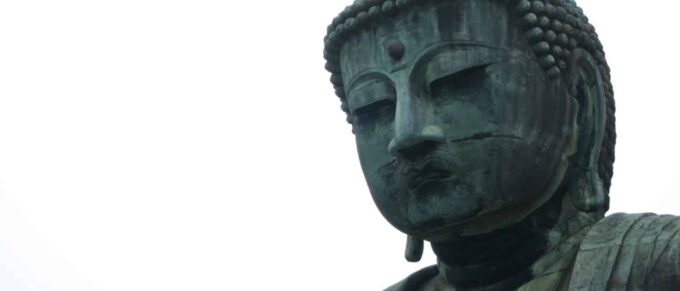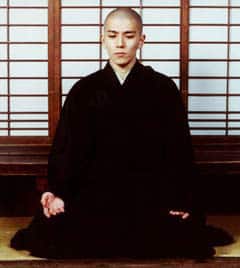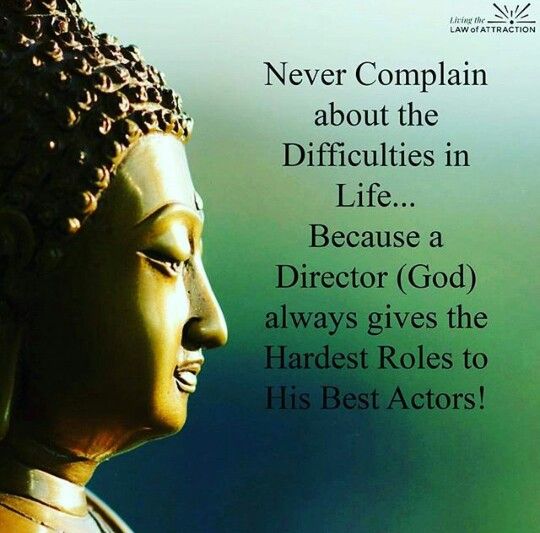Perhaps the Buddhist doctrine of karma (“deeds”, “actions”), and the closely related doctrine of rebirth, are the best known of all the Buddhist doctrines. The Buddhist theory of karma and rebirth are quite distinct from their other Indian counterparts (Hinduism and Jainism).
Karma
In Buddhism, the law of karma is the moral law of causation – good actions give good results and bad actions bring bad results. Also, a very important aspect is that the quality of an act determines its consequences. Early Buddhism evaluates the karmic quality of an act in terms of moral and ethical criteria. In particular, it is the mental factors which accompany the commission of deed that determines its consequences or “fruits”. All negative karma (actions leading to bad consequences) arise from the three roots of unwholesomeness. These are greed (lobha), aversion (dosa), and delusion (moha). Accordingly, good karmic results follow from deeds that spring from generosity (caga), loving-kindness (metta) and wisdom (vijja).
Buddha emphasised that the future consequences are determined by the mental factors involved – rather than the deeds themselves. Thus, the same deed committed with different mental factors will have different consequences. Likewise purely accidental deeds may have neutral consequences; however if the accident occurred because insufficient mindfulness was exercised, it could have adverse results for the person responsible for it.
The theory of karma presupposes that individuals have “free will”. The doctrine of karma is not a theory of predestination of any kind. Everything that happens to an individual is not the fruit of some past karma. In fact, the experiences that involve an individual may be of three kinds:
– some are the result of past action,
– some are deliberately committed free acts,
– some could be due to chance factors operating in the environment.
One common misunderstanding is not to distinguish between the action and its results – between karma and vipaka. It must also be mentioned that the fruiting of an act may be postponed, and that it is possible to reach enlightenment – the goal of the Buddha’s path – before all the previous karmas have yielded their result.
Rebirth
The Buddhist theory of rebirth asserts that the fruits of some karma may manifest themselves in “future lives”. This brings us to the Buddhist theory of rebirth. Similar concepts occur in other religious systems – the Platonic theory of the “pre-existence of the soul,” and the Hindu-Jain theory of re-incarnation. Such theory involves the transmigration of a soul, but in Buddhism there is no conception of a transmigrating soul which inhabits successive material bodies until it unites with God.
In Buddhism, however, it is the unripened karmic acts outstanding at the death of an individual which conditions a new birth. The last moment of consciousness too is also a conditioning factor, but it is the store of unripened karma generated by volitional acts (the sankharas) of previous existences which generates the destiny of the new individual. A newly born individual needs not only the genetic blueprint derived from the genes of the natural parents, but also a karmic blueprint derived from the volitional acts of a deceased person.
Buddhism uses the Pali term samsara to denote the “round of births” in various planes of existence governed by the law of karma. In the Culakarmavibhanga Sutta the Buddha is asked: “What is the reason and the cause for the inequality amongst human beings despite their being human?” (the inequality at birth). The Buddha answered: “Beings inherit their karma, and it is karma which divides beings in terms of their inequality.”
Some support for the theory of rebirth comes from reports of recollections of past lives, whether spontaneously or under hypnosis, which have been reported from all parts of the world. According to Buddhism, individuals can develop the the ability to recall past lives, but the development of such supernormal powers is usually the accompaniment of progress along the spiritual path of enlightenment. It is possible that some karmic factors may predispose some individuals towards such experiences.
The central tenets of Buddhism relate not to any abstract theories about rebirth or karma but to the interpretation of human experience which is within the capacity of every person to verify. This verification can be undertaken, not in terms of an abstract cycle of lives, but also in terms of the one life we are all familiar with. The Buddhist samsara is to be seen in every moment of existence, as well as the whole “cycle of births”.
Referring to the “four-fold confidences” attained by the “noble person” (the person who follows the path of the Buddha), the Buddha states:
“If there is the other world, and if there is the fruit and result of good and bad deeds, then there is reason that I shall be reborn into the state of bliss, the celestial world, on the dissolution of the body, after death.’ This is the first confidence that the noble person attains.
“If, however, there is no other world and if there is no fruit and no result of good and bad deeds, then I shall myself lead he a happy life, free from enmity, malice and suffering in this very life’. This is the second confidence that the noble person attains.”
Buddha was asked whether the new individual is the same as the old individual whose karma it has inherited. His answer to this question was somewhat enigmatic: “It is not the same, yet it is not another.”
photo credit : back2vedas




